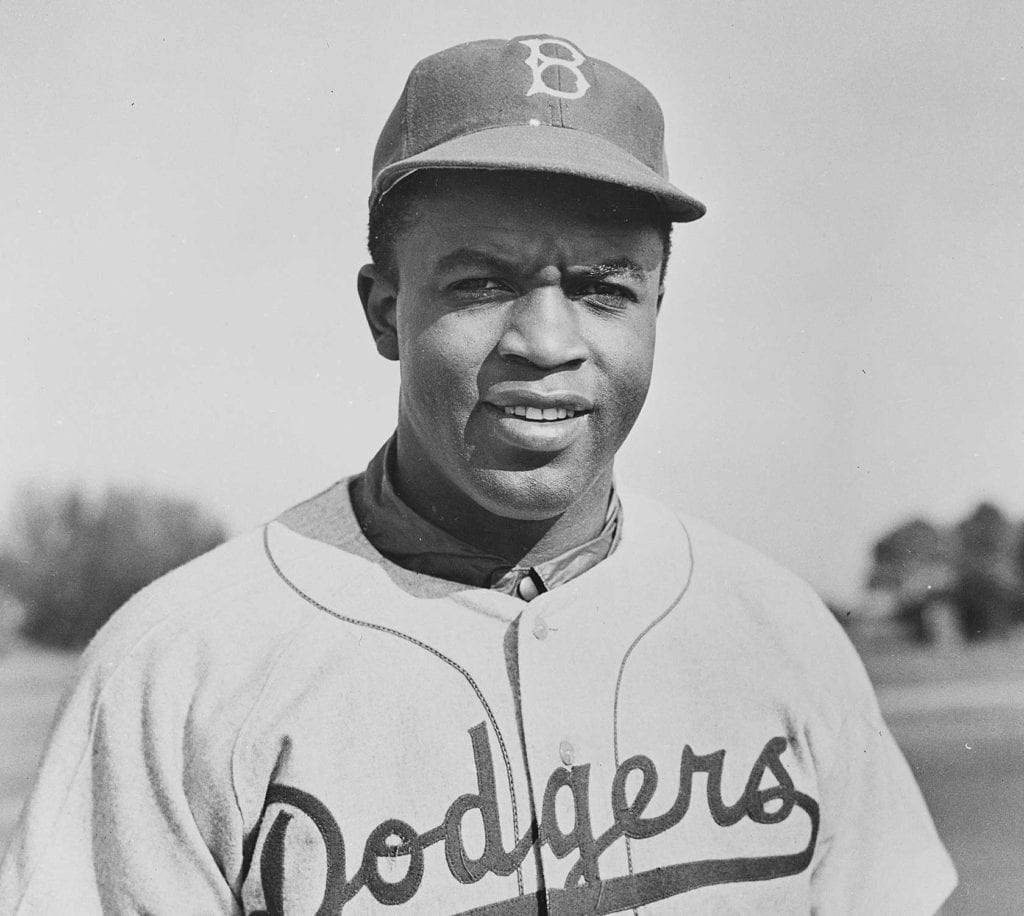
April 15 is the 75th anniversary of Jackie Robinson’s smash of the color line in baseball. The annual ritual is that Major League Baseball honors Robinson at the start of the season. In the past, players, coaches and umpires have worn Robinson’s old number 42 for one game as tribute. The gesture and the players’ compliance are genuine and heartfelt. They recognize that Robinson’s entrance into MLB was a tipping moment for race relations. The irony is that Robinson then and in the years after he left baseball didn’t see the game and America quite the way MLB officials nostalgically remember it and him.
When Robinson stood on the field in his first game in the majors, he later said, he was “uneasy” and far less hopeful that his feat would change American attitudes toward Blacks. Twenty-five years later, Robinson’s unease became bitter doubts. In his autobiography, “I Never had it Made,” he unapologetically declared, “I cannot stand and sing the anthem. I cannot salute the flag. I know that I am a Black man in a white world. I never had it made.”
In 1949, Black singer/activist Paul Robeson made an ill-timed and much distorted statement that Blacks were sympathetic to the Soviet Union. Robinson was pressured to testify before the witch-hunting House Un-American Activities Committee to refute Robeson. Robinson did not want to be used as a Black pawn to attack Robeson. In his testimony, he opposed Communism, criticized the Committee for its “partisan politics” and fiercely attacked racial discrimination: “We’re not going to stop fighting race discrimination in this country until we’ve got it licked.”
For more than a decade, Robinson gave speeches, helped raise funds and made generous contributions to the NAACP and the SCLC. But in 1967, he resigned from the NAACP’s board of directors, accusing it of being “insensitive to the trends of our times, unresponsive to the needs and aims of the Black masses — especially the young — and more and more they seem to reflect a refined, sophisticated, ‘Yassuh-Mr. Charlie’ point of view.” His criticism foreshadowed the charges made by dissidents that would nearly wreck the NAACP almost two decades later.
Many Blacks called Robinson an “Uncle Tom and “sell-out” for supporting the Republican presidential bid of Richard Nixon over Democratic candidate John F. Kennedy in 1960. Robinson did not receive any money or political favors for supporting Nixon. His sole litmus test was how strongly a candidate supported civil rights: “I was not beholden to any political party. I was Black first.”
But the Nixon of 1960 wasn’t the Nixon of 1968, who inflamed law-and-order sentiment and pandered to racist white Southerners. As Eisenhower’s vice president, Nixon vigorously fought for the civil rights bills of 1957 and 1960 and for stronger action against racially- motivated violence. The Kennedy of 1960 wasn’t the Kennedy of 1963 who took forceful civil rights action. As a senator, he voted to water down a section of the Civil Rights bills of 1957, and actively courted racist Southern Democrats. Robinson promised that if his candidate betrayed him on civil rights, “I’ll be right back to give him hell.” He did. “Every chance I got I said plainly what I thought of the right-wing Republicans and the harm they were doing.”
Like many then, Robinson at first criticized Malcolm X’s approach to racial problems. But in time he came to respect and admire Malcolm: “Many of the statements he made about the problems faced by our people and the immorality of the white power structure were the naked truth.”
He staked his career and reputation on making black economic empowerment a reality. He believed there were two keys to the advancement of Blacks in America, “the ballot and the buck.”
Robinson got the break of the century when he was chosen to crack the color bar in baseball. He was courted by politicians and showered with honors. He attained a measure of financial success. Yet at the end of his life, he realized that many Blacks had continued to lose ground: “I can’t believe that I have it made,” he said, “while so many of my Black brothers and sisters are hungry, inadequately housed, insufficiently clothed, denied their dignity, live in slums or barely exist on welfare.”
Robinson until the end insisted he never had it made. He’d likely say the same today. That’s the Robinson baseball won’t remember, but we should.
Earl Ofari Hutchinson is an author and political analyst.






